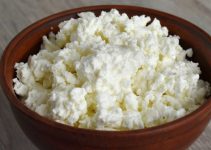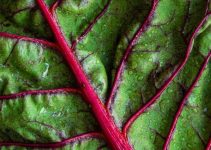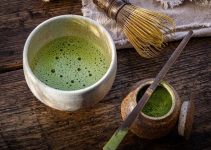Diabetes is a chronic disease that affects many of the world’s population.
Its consequences are severe. It can cause blindness, heart disease, and kidney disease.
Prediabetes is also associated with these conditions.
You may be wondering, how does food affect diabetes? Find out about 11 foods to avoid with diabetes or prediabetes.
Why Does Carb Intake Matter For People With Diabetes?
Carbohydrates are broken down into sugar and absorbed by the bloodstream. In this way, carbohydrates affect blood sugar levels.
Thus, people with diabetes must control the portion of carbohydrates since excessive consumption can cause glucose peaks.
1. Sugar-Sweetened Beverages

Sugary drinks are very high in carbohydrates. For example, 12 ounces of cola provides 38.5 grams of carbs.
Also, the same amount of lemonade and sweetened iced tea each contains 45 grams of carbohydrates that are exclusively sugar.
These drinks are also high in fructose, a sugar that affects diabetes.
In fact, according to research, sweetened beverages increase the risk of diabetes-related diseases.
On the other hand, studies conducted on obese people found that the consumption of high fructose beverages increases insulin resistance, lowers the metabolic rate, and worsens markers of heart health.
2. Trans Fats
Although they do not directly increase blood sugar levels, trans fats increase inflammation and insulin resistance, lower “good” cholesterol (HDL) levels, and worsen artery function.
Trans fats are so harmful that in 2018, the Food and Drug Administration (FDA) banned the use of partially hydrogenated oil, which is one of the primary sources of trans fats.
However, this does not mean that trans fats are no longer used in the United States: manufacturers are not required to add trans fats on food labels if their content is less than 0.5 grams per serving.
3. White Bread, Rice, and Pasta

Refined flours have a powerful impact on increasing blood levels in people with diabetes.
In addition, a study found that gluten-free pasta also increased blood sugar levels.
Another study showed that foods high in carbohydrates increase blood sugar levels and affect brain functions in people with diabetes.
In contrast, it is advisable to consume foods rich in fiber. Research shows that its consumption reduces blood sugar levels in people with diabetes while improving insulin resistance.
4. Fruit-Flavored Yogurt

A cup of fruit-flavored yogurt contains about 31 grams of sugar, meaning that almost 61% of its calories come from sugar.
On the other hand, frozen yogurt is not healthy either since it has as much sugar as ice cream.
It is advisable to consume whole milk yogurts: they do not contain sugar and provide other health benefits such as appetite control and weight loss.
5. Sweetened Breakfast Cereals
Sweetened cereals are not a good option for people with diabetes since they provide many carbohydrates and few proteins (which help regulate blood sugar levels).
Nor are “healthy” breakfast cereals good for people with diabetes.
Half a cup of granola contains 44 grams of carbohydrates, while grape nuts contain 47 grams. Each of them does not provide more than 7 grams of protein per serving.
6. Flavored Coffee Drinks
Flavored coffee drinks are very high in sugar and carbohydrates.
According to research, drinking calories is not compensated by eating fewer calories later, which leads to weight gain.
Let’s look at an example: a 16-ounce Caramel Frappuccino from Starbucks provides 57 grams of carbohydrates, while a Blonde Vanilla Latte of the same size contains 30 grams of carbs.
7. Honey, Agave Nectar, and Maple Syrup
These sweeteners are not processed. However, they contain as much or more carbohydrates like white sugar.
One tablespoon of these sweeteners contains:
- White Sugar: 12.6 grams of carbs.
- Agave Nectar: 16 grams of carbs.
- Honey: 17.3 grams of carbs.
- Maple Syrup: 13.4 grams of carbs.
According to research, people with diabetes experience the same increase in blood sugar levels when consuming white sugar or honey.
8. Dried Fruit
Dried fruits contain a lot of sugar.
A cup of grapes contains 27.3 grams of carbohydrates (and 1.4 grams of fiber), while a cup of raisins contains 115 grams of carbohydrates.
9. Packaged Snack Foods
Packaged foods are not a good snack option.
A 28-gram serving of these snacks contains:
- Pretzels: 22.5 grams of carbs and 0.95 grams of fiber.
- Saltine crackers: 20.7 grams of carbs and 0.78 grams of fiber.
- Graham crackers: 21.7 grams of carbs and 0.95 grams of fiber.
On the other hand, an investigation found that snacks contribute about 7.7% more than what is established on their labels.
10. Fruit Juice
Fruit juices often contain added sugar.
For example, 250 ml of apple juice provides 24 grams of sugar.
In addition, these drinks are also high in fructose, which leads to insulin resistance, obesity, and heart disease.
A healthy alternative is to drink water with a lemon wedge.
11. French Fries
First, potatoes are high in carbohydrates: a medium potato contains 34.8 grams of carbs.
But in addition, its frying causes toxic components that promote inflammation and the risk of diseases.
In fact, studies have found a very close relationship between the consumption of French fries and heart disease.





